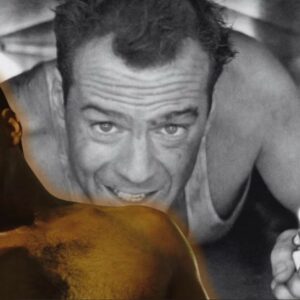In the vibrant world of pop music, few artists shine as brightly as Pink. With a career spanning over two decades, Pink has established herself as a powerhouse performer, a boundary-pushing artist, and a role model for countless fans. Her journey from a fledgling artist to an international superstar is a testament to her talent, perseverance, and the intricate machinery that supports her success. Among the unsung heroes behind Pink’s flourishing career is her tour manager, a pivotal figure whose behind-the-scenes work ensures the smooth operation of her extensive tours. This article delves into the critical role of a tour manager in Pink’s career, shedding light on the complex orchestration required to keep her shows running seamlessly.
The Phenomenal Career of Pink
Alecia Beth Moore, known professionally as Pink, burst onto the music scene in the early 2000s with her debut album Can’t Take Me Home. With a raw, edgy voice and an unapologetically bold attitude, Pink quickly captured the attention of both critics and audiences. Her subsequent albums, including M!ssundaztood, Try This, and Funhouse, solidified her status as a dynamic performer and a chart-topping artist. Known for her high-energy performances, acrobatic stage acts, and emotionally charged lyrics, Pink has not only won numerous awards but also maintained a dedicated fan base worldwide.
However, behind the glittering facade of Pink’s career lies a world of meticulous planning, organization, and problem-solving. At the heart of this intricate operation is the tour manager, whose role is crucial in ensuring that every aspect of Pink’s touring experience is executed flawlessly.
The Role of a Tour Manager in a Major Artist’s Career
The tour manager is the unsung hero of any successful tour. Often working behind the scenes, they are responsible for managing every logistical detail of the tour, ensuring that the artist and their crew can focus on delivering stellar performances. For an artist like Pink, whose tours are large-scale productions involving elaborate staging, numerous crew members, and extensive travel, the role of the tour manager becomes even more critical.
1. Behind-the-Scenes Operations
Logistical Coordination
One of the primary responsibilities of a tour manager is logistical coordination. This encompasses organizing travel arrangements, booking accommodations, and scheduling performances. For an artist of Pink’s stature, this involves coordinating flights, buses, and transportation for a large team, including band members, dancers, and support staff.
The tour manager must ensure that all these logistics align with the tour schedule. They work closely with booking agents, venues, and promoters to confirm dates and times, manage contracts, and handle any last-minute changes. The complexity of this task cannot be overstated; a single misstep in scheduling or travel can have a cascading effect on the entire tour.
Problem Solving
Despite meticulous planning, unexpected issues can and do arise. From travel delays to equipment malfunctions, a tour manager must be adept at problem-solving under pressure. For instance, if a flight is canceled or delayed, the tour manager must quickly arrange alternative transportation to ensure that the tour schedule is not disrupted.
Similarly, technical difficulties during a show—such as sound system failures or stage equipment issues—require immediate resolution. The tour manager must liaise with technical staff, venue managers, and crew members to address these problems swiftly and efficiently, ensuring that the show goes on as planned.
2. Artist and Crew Management
Artist Relations
The tour manager plays a vital role in maintaining positive relations between the artist and the crew. For Pink, whose energetic performances and demanding schedule can be both physically and emotionally taxing, the tour manager acts as a buffer, managing any issues that may arise within the team.
This includes handling personal requests, addressing concerns, and ensuring that Pink’s needs—whether related to accommodation, transportation, or personal time—are met. The tour manager’s ability to manage these relationships with tact and professionalism is crucial for maintaining a harmonious and productive working environment.
Crew Coordination
Managing a tour involves coordinating a diverse group of individuals, from musicians and dancers to technical staff and security personnel. The tour manager ensures that everyone is on the same page regarding schedules, responsibilities, and expectations. This involves regular communication, briefing sessions, and addressing any conflicts that may arise.
Additionally, the tour manager oversees the logistics for the crew’s accommodation and transportation, ensuring that their needs are met and that they are well-rested and prepared for each performance. This aspect of the job is essential for maintaining morale and ensuring that the tour runs smoothly.
3. The Financial and Legal Aspects
Budget Management
Another critical aspect of the tour manager’s role is managing the tour’s budget. This involves tracking expenses, negotiating contracts, and ensuring that costs are kept within the allocated budget. For a major tour like Pink’s, this includes expenses related to travel, accommodation, equipment, and personnel.
The tour manager works closely with financial advisors and accountants to prepare detailed budgets and financial reports. They must also handle any unexpected expenses, ensuring that the tour remains financially viable while delivering the high-quality experience that fans expect.
Legal and Compliance Issues
Ensuring that all legal and compliance issues are addressed is another key responsibility of the tour manager. This includes managing contracts with venues, handling permits and licenses, and ensuring compliance with health and safety regulations. The tour manager must be well-versed in these legal requirements to avoid any potential issues that could impact the tour.
4. The Personal Touch
Emotional Support
Beyond the logistical and financial aspects, the tour manager also provides emotional support to the artist and crew. Touring can be grueling, with long hours, time away from family, and the pressures of performing night after night. The tour manager’s role in offering encouragement, maintaining a positive atmosphere, and providing a listening ear can make a significant difference in the overall experience.
Creating a Positive Environment
The tour manager is also responsible for fostering a positive and productive environment. This includes organizing team-building activities, ensuring that everyone feels valued and respected, and addressing any interpersonal issues that may arise. By creating a supportive and collaborative atmosphere, the tour manager helps to ensure that the tour is not only successful but also enjoyable for everyone involved.
Conclusion
The role of a tour manager in a major artist’s career is both complex and crucial. For Pink, whose tours are known for their scale and spectacle, the tour manager’s responsibilities extend far beyond mere logistics. They are the linchpin of the entire operation, handling everything from scheduling and problem-solving to artist relations and financial management.
Behind every successful performance, there is a team of dedicated professionals working tirelessly to ensure that everything runs smoothly. The tour manager, often working behind the scenes, is a key figure in this team, contributing significantly to Pink’s continued success and the unforgettable experiences enjoyed by her fans.
As Pink continues to captivate audiences around the world, the indispensable role of her tour manager remains a testament to the intricate and often unseen work that goes into making a major tour a resounding success.





